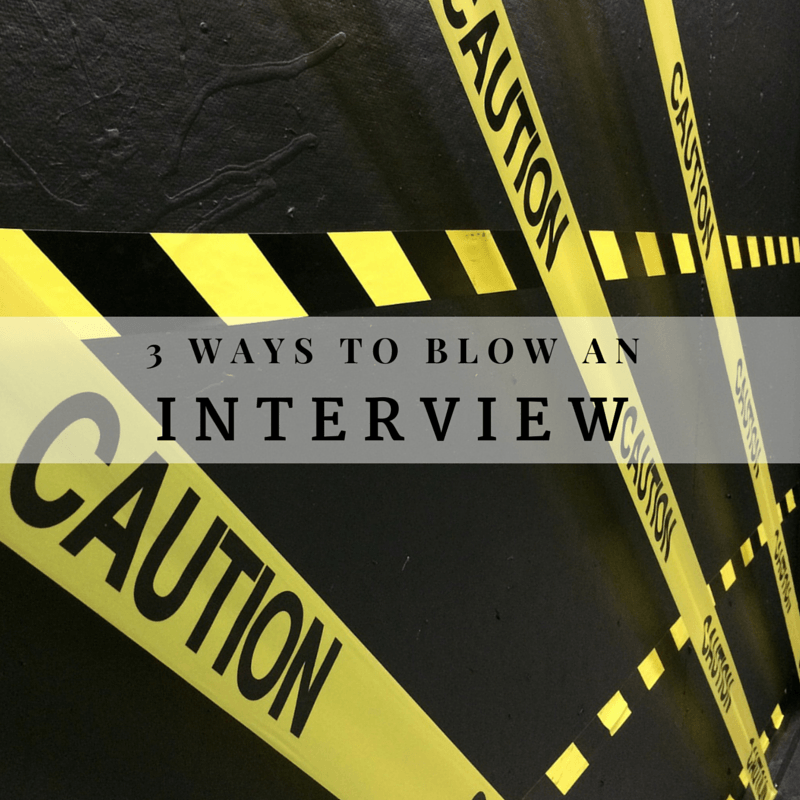
Last week, I shared some insights on career change. Once someone makes the mental commitment to change jobs, then starts the real work of updating resumes and prepping for interviews.
Finding “The One”
Job hunting can feel a lot like online dating. Hiring managers post what they want in a relationship (employee/role) and what they have to offer (benefits/culture/etc). Possible candidates respond with their profile (resume) and hope they make the first cut of potentials. Then it might be a phone call (screening interview) or two, before eventually – maybe – making it to an actual date (interview).
Both sides might have to look at a lot of profiles before finding a potential fit. And that’s just the beginning.
Interviews are an opportunity for each party to determine whether or not they’ll make a match. It’s not until after hiring, however, that either party will figure out that this job or employee is “the one.”
Candidates – and hiring managers – can do a lot to make this process a more accurate reflection of how the relationship will function after dating is over and the marriage has started.
What to Avoid
Because so much has been written about successful interviewing, I thought I’d share some insights on what NOT to do. Things that immediately take you out of the dating pool.
Humor
As human beings, we naturally want to connect with others. Humor can be a great way to connect – it can help people loosen up, establish rapport and make things more comfortable. Maybe.
Excessive or inappropriate humor is a no-no during an interview. Particularly using humor in response to serious questions. A hiring manager may not be able to tell that the response is meant to be humorous. The best humor is based on truth, so he or she may wonder if the joke is really someone’s true perspective.
Why do you want to be a manager? Because I’m already a boss and I’m ready to be the boss.
or
Tell me a time when you didn’t get along with a colleague? Everyone loves me.
The responses may get a chuckle. They may also get a hard look at whether the candidate can be serious in the role.
While humor can definitely help in an interview, make sure it is well-timed and appropriate. If there is any doubt, skip the humor and figure out other ways to connect with the interviewer.
The Royal We
Most of us work as part of teams, or will from time to time in a given role. For a hiring manager, it is important to determine what an individual is capable of and what he or she can contribute to the success of a team. That means knowing what “I” did and that “I” can also work in a “we.”
Candidates that answer every questions with “we” did this or that, make an interviewer wonder if the individual did any of the work. What did “I” do? If there are no “I” statements, it creates concern that the candidate did not accomplish anything on his/her own.
On the flip side, all “I” statements are also a concern. Someone that only talks about themselves, with no context of team, may appear unable to work in a team environment.
For a candidate, it may seem like there’s no way to win. But there is. Be clear on what was accomplished individually and how it fit into the context of an overall team accomplishment or contribution.
A good example might be: “I completed all of my assignments on time, helping the team achieve our 95% service level agreement target.”
Believing Your Own Press
People are attracted to confidence. It’s a great characteristic to have, particularly in those responsible for leading others.
While confidence is good, arrogance is not. Confident people have an air about them, but they don’t need to brag. They let their work speak for itself.
It can be challenging in an interview to balance the need to share accomplishments without coming across as arrogant.
A way to balance confidence with a dose of humility is during behavioral questions. For example, answering a question about weaknesses with “I don’t have any,” demonstrates a lack of personal awareness, not just arrogance.
Confidence and a personal belief in the ability to do the job are good things. Coming across as a self-involved dork? Not so much.
What’s Worth Doing
When asked, I only have one piece of advice to share with friends and colleagues preparing for an interview. It’s the same advice I’d give girlfriends when I was single – be yourself.
The person that wants who you are is less likely to be disappointed later than the one who wants who they thought you were.
If you put on the best face possible and say everything your date wants to hear, you have to maintain it if the relationship takes off. Because they bought into the face you presented, not the one you have.
If you have to be something you are not for things to work out, then is that relationship one you really want to be in? Probably not.
It’s the same with a potential job. Both sides need to want what the other has to offer – as they are, not as they wish them to be. At least if there’s any hope that this is “the one.”
Are there tips you share with friends and colleagues preparing for an interview? I’d love if you could post them in the comments to keep the conversation going.









One Response
Well, I don’t remember online dating – I hardly remember dating. But I do remember that one of the keys to presenting yourself is listening and looking … so you can hear what the other person is (and isn’t) saying … so you can find out what they’re looking for, what their targets are (they’re so much easier to hit when you know what they are!) … so you can sense how the other person is responding to with interest, with concern, with curiousity …
IMHO, job-hunters are so intent on get a chance to talk with someone that they forget to talk WITH someone instead of AT them. We often get so tightly rehearsed and wound up in our recital that we forget to be human, share our context, maybe even have a bit of personality and/or be a little bit likeable.
The Q&A format usually doesn’t have to be a stricture but just a way to keep the conversation moving into the appropriate areas. A formal scripted answer filled with all the carefully-worded accomplishments, assets, and carefully-worded deflections really doesn’t accomplish much – anybody can say that. It’s only believable when it is part of your story, your context. Then it feels real and the person can start to have a little confidence that maybe you can really do that stuff. And best of all, it allows you to reveal a little of yourself so the person can get a sense of whether you are likeable, whether you fit – and that’s the absolute best result in an interview.
I spent decades interviewing and hiring, and looking and interviewing and getting hired (and not). It is SO MUCH like dating. You don’t just deliver your attributes and expect someone to hire you. People hire people they have confidence in, people they like (or at least don’t hate), and people who they think will fit and help solve the problem.
Good luck!!